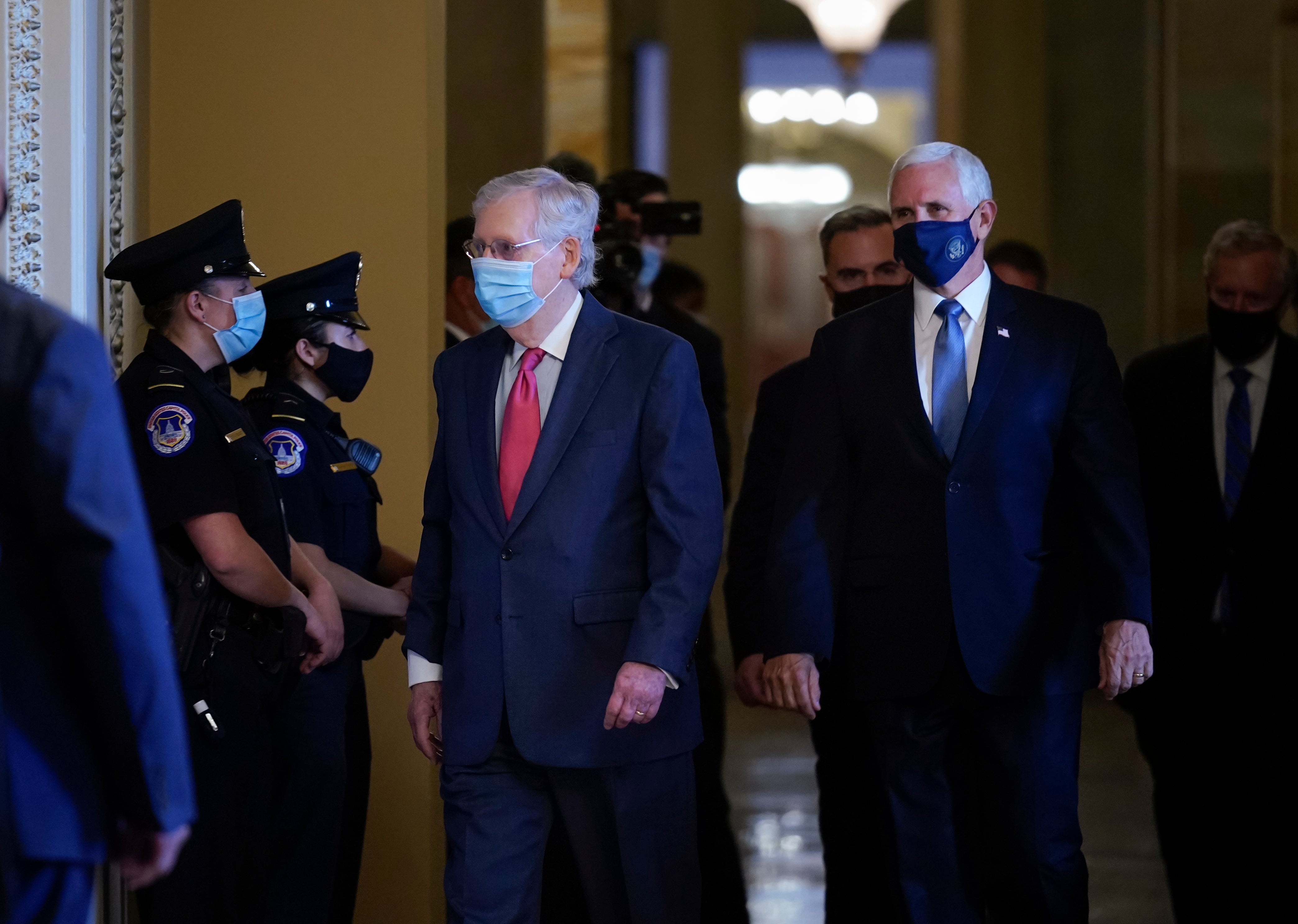Pelosi and Mnuchin plan last-ditch meeting on virus relief
House Speaker Nancy Pelosi and Treasury Secretary Steven Mnuchin are making a last-ditch effort to seal a tentative accord on an additional round of COVID-19 relief

Your support helps us to tell the story
From reproductive rights to climate change to Big Tech, The Independent is on the ground when the story is developing. Whether it's investigating the financials of Elon Musk's pro-Trump PAC or producing our latest documentary, 'The A Word', which shines a light on the American women fighting for reproductive rights, we know how important it is to parse out the facts from the messaging.
At such a critical moment in US history, we need reporters on the ground. Your donation allows us to keep sending journalists to speak to both sides of the story.
The Independent is trusted by Americans across the entire political spectrum. And unlike many other quality news outlets, we choose not to lock Americans out of our reporting and analysis with paywalls. We believe quality journalism should be available to everyone, paid for by those who can afford it.
Your support makes all the difference.House Speaker Nancy Pelosi and Treasury Secretary Steven Mnuchin planned to meet face to face for the first time in more than a month Wednesday in a last-ditch effort to seal a tentative accord on an additional round of coronavirus relief
The Democratic-controlled House, meanwhile, moved on a separate track to overrun GOP opposition and pass a $2.2 trillion COVID-19 rescue bill as one of their final acts before leaving Washington to campaign.
Pelosi and Mnuchin were scheduled to continue negotiations in hopes of a deal that would permit another round of $1,200 direct stimulus payments, restore bonus pandemic jobless benefits, speed aid to schools and extend assistance to airlines, restaurants and other struggling businesses.
“We’re going to give it one more serious try to get this done, and I think we’re hopeful that we can get something done,” Mnuchin said Wednesday morning on CNBC
Wednesday afternoon's meeting at the Capitol is supposed to feature a new Trump administration offer. Mnuchin told CNBC that he expects the proposal to resemble a plan released a couple of weeks ago by the bipartisan Problem Solvers Caucus that totaled about $1.5 trillion — but was previously rejected by Pelosi and other top Democrats as inadequate.
Pelosi and Mnuchin have ramped up talks in recent days but remain far apart. The two have worked effectively together in the past and were key forces on a $2 trillion aid package that passed in March, but the bipartisan spirit that drove that measure into law has all but evaporated. Neither side has publicly offered the kind of concessions that would generate tangible momentum.
Republicans say they cannot stomach any agreement close to the $2.2 trillion bill that Democrats are pushing. The GOP immediately swung against Pelosi's bill, saying the liberal Speaker isn't serious. Even if Pelosi and Mnuchin were able to reach a tentative agreement on “top line" spending levels, dozens of nettlesome details would need to be worked out.
“Let’s see if we can get a compromise agreement with the Speaker, something that works, and then we’ll continue to work with both sides on all the exact language and the policies,” Mnuchin told CNBC.
Pelosi, D-Calif., has not budged an inch on a key demand of Senate Majority Leader Mitch McConnell, R-Ky., who says he will not permit a vote on any relief bill that does not provide a liability shield for businesses, schools and universities that reopen.
Pelosi's latest bill would revive a $600-per-week pandemic jobless benefit and send a second round of $1,200 direct payments to most individuals. It would scale back an aid package to state and local governments to a still-huge $436 billion, send a whopping $225 billion to colleges and universities and deliver another round of subsidies to businesses under the Paycheck Protection Program. Airlines would get another $25 billion in aid to prevent a wave of layoffs that are coming this week.
The proposal represents a cutback from a $3.4 billion bill that passed the House in May but remains well above what Senate Republicans are willing to accept. Republicans have endorsed staying in the $650 billion to $1 trillion range.